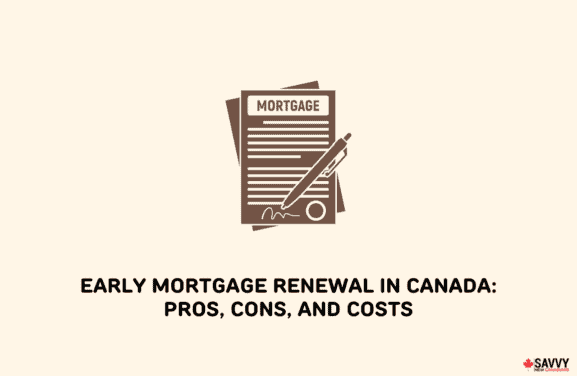When you purchase a home with a mortgage, you agree to meet all the agreement terms, especially making the monthly payments.
If you cannot meet the terms, the lender might choose to possess the house and sell it using a power of sale.
In this guide, we look at what a power of sale is, how it’s different from foreclosure, whether it’s a good idea to buy power of sale properties, and more.
Key Takeaways
- A power of sale gives the lender authority to possess and sell your property if you default on your mortgage.
- While it is similar to foreclosure, there are some important differences.
- You may be able to prevent the power of sale in several ways, including remortgaging.
What is a Power of Sale?
A power of sale grants the lender the power to possess and sell a property if you default on your mortgage.
This is a serious situation, and the lender will normally reach out to you first to ask you to rectify the situation before taking action.
Power of Sale Process
There is a power of sale process, and as the homeowner, you will always be notified before the power of sale if you fail to make a mortgage payment.
You will also find out when a power of sale is being proposed, and it must be in writing.
The process typically takes between two weeks and 45 days, depending on the province. A power of sale can be used in Ontario, New Brunswick, Prince Edward Island, and Newfoundland and Labrador.
- Ontario – A property can be sold 45 days after notice if the mortgage has been defaulted on for three months or more. The lender must notify the homeowner 45 days before selling the property.
- New Brunswick – The lender must provide written notice to the homeowner about the possible sale, including the time and location of the sale. Notification must also be published in a newspaper in the same county as the property for two weeks.
- Prince Edward Island – The lender must notify the homeowner about the default, and then a period of time must pass before the sale. However, this period can vary.
- Newfoundland and Labrador – The lender must provide a written notice to the borrower. After 30 days, if the homeowner still defaults, the lender must publish a Notice of Sale in a newspaper in the property’s area for two consecutive weeks.
Should You Purchase Power of Sale Properties in Canada?
You might be tempted to buy power-of-sale properties because you think you’re getting a good deal. However, this isn’t always the case.
With a power of sale, lenders must sell the home at its market value, so they cannot sell it for a large discount just to get rid of it.
Also, the previous owner does not have to make any modifications or repairs. These are the buyer’s responsibility. This could be a problem if the borrower did not have enough money to keep the property in good condition.
Power of Sale vs. Foreclosure
Foreclosure is the process used in the three territories and the following provinces in Canada: British Columbia, Alberta, Quebec, Saskatchewan, Nova Scotia, and Manitoba.
Foreclosure is similar to a power of sale in that both result in selling your property if you default on your mortgage.
However, with a foreclosure, the lender immediately possesses the property and becomes the homeowner.
When they sell the property, they have no obligation to the borrower, who is out of the picture. Foreclosure is also typically a longer process.
In a power of sale, the lender must sell to the highest bidder to get the highest price they can. The funds go towards paying off the outstanding debt, including the balance, interest, commissions, etc. After these payments are covered, any extra is given to the homeowner.
However, if the property sells for less than the borrower owes, the borrower must pay the remaining balance.
Is a Power of Sale or Foreclosure Better?
There are pros and cons of both a power of sale and foreclosure. It usually depends on your home’s current value and the remaining mortgage balance.
If the value has increased, with a power of sale, the lender will sell the property to pay off the mortgage, and you get any extra remaining.
But if the property value has decreased, you could owe money even after selling the property. In this case, foreclosure may be better.
Can You Avoid a Power of Sale?
A power of sale won’t just happen without you knowing about it. You will always receive notice first.
You may be able to prevent it by selling your property. Or you might be able to remortgage it with another lender, perhaps with a lower monthly payment you can afford.
Or you could simply try and negotiate with your lender to find a solution. Lenders will often be flexible and willing to make a deal if you are struggling to pay your mortgage, so it’s always worth talking to them.
FAQs
No, while both result in selling the property when the borrower defaults on their mortgage, there are differences. For example, with a power of sale, the lender must sell the property for its fair value, and the borrower receives any profits after the mortgage has been paid off.
If you sell a house with a mortgage, you can pay off the mortgage using the proceeds from the sale and keep any profits. However, you may have to pay early payment penalties and other fees.
You may need to pay capital gains tax when you sell a house. However, if the property is your principal residence, you would not normally pay this.
You are liable until the deal is finalized and the buyer takes possession of the property. However, a buyer could still choose to file a lawsuit against you if you fail to disclose problems with the property.
Related:



